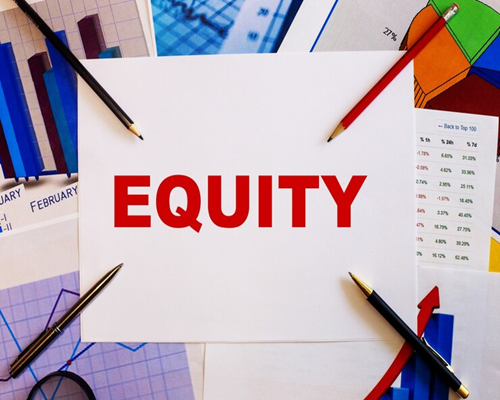Enterprise Valuation
Understanding Enterprise Valuation: A Comprehensive Guide
Enterprise value (EV) is the total value of a company, defined in terms of its financing.It involves assessing all assets, both tangible and intangible, to derive an accurate financial value. Enterprise valuation is the process of determining the overall value of a business. It combines several methods to estimate a company’s worth, including discounted cash flow (DCF) analysis, comparable company analysis, and precedent transactions. DCF projects future cash flows and discounts them to present value. Comparable company analysis evaluates similar businesses' market values, while precedent transactions consider past sales of comparable firms. Accurate enterprise valuation is crucial for mergers, acquisitions, investment decisions, and strategic planning. It provides insights into a company's financial health, growth potential, and market positioning. A thorough valuation helps stakeholders make informed decisions, ensuring fair transactions and optimized financial strategies.


Discounted Cash Flow
Understanding Discounted Cash Flow (DCF) Analysis
Discounted Cash Flow (DCF) is a valuation method used to estimate the value of an investment based on its expected future cash flows. DCF helps to calculate how much an investment is worth today based on the return in the future.The process involves forecasting the investment's cash flows and discounting them back to their present value using a discount rate, often the weighted average cost of capital (WACC). This approach accounts for the time value of money, recognizing that a dollar today is worth more than a dollar in the future. By summing the present values of all future cash flows, investors can determine the intrinsic value of the investment. If the DCF valuation exceeds the current market price, the investment may be considered undervalued and potentially attractive. DCF is widely used in finance for valuing businesses, projects, and securities, offering a comprehensive view of an investment’s potential profitability.
Comparable Company Analysis
Conducting a Comparable Company Analysis: A Brief Guide
Comparable Company Analysis (CCA), also known as "comps," is a valuation methodology used to evaluate the value of a company by comparing it to similar firms in the same industry. Comparable Company Analysis (CCA) is a valuation method used to evaluate a company's worth by comparing it to similar firms. This process involves selecting a peer group of companies with similar business models, sizes, and market segments. Key financial metrics such as revenue, EBITDA, and price-to-earnings ratios are analyzed.These metrics are averaged to establish a benchmark, which is then applied to the target company to estimate its value. CCA is favored for its simplicity and reliance on market data, making it a popular tool in investment banking and equity research for providing quick and market-reflective valuations. However, careful selection of comparables is crucial for accurate results.


Precedent Transaction Analysis
Precedent Transaction Analysis: Understanding its Importance
Precedent transaction analysis evaluates a company's value by comparing it to similar past transactions in the market. This method assesses acquisitions or mergers within the same industry to gauge fair value, considering factors like revenue, profitability, and market conditions. It provides insights into market trends, valuation multiples, and strategic premiums paid, aiding in informed decision-making for potential deals. By examining historical transactions, investors and analysts can anticipate potential pricing and negotiate effectively. This analysis enhances transparency and credibility in financial evaluations, guiding stakeholders in assessing the feasibility and fairness of current market valuations. As a crucial tool in financial analysis, precedent transaction analysis offers a practical framework for valuing companies, ensuring thorough due diligence and alignment with industry standards.Precedent transaction analysis is a valuation method in which the price paid for similar companies in the past is considered an indicator of a company's value.
Assets Based Valuation
Asset-Based Valuation: Understanding Its Importance
Asset-based valuation is a form of valuation in business that focuses on the value of a company's assets or the fair market value of its total assets after deducting liabilities. Asset-based valuation assesses a company's worth by evaluating its tangible and intangible assets. Tangible assets include property, equipment, and inventory, while intangible assets encompass patents, trademarks, and goodwill. This method provides a foundational assessment, especially useful for asset-rich businesses like manufacturing or real estate. In practice, asset-based valuation involves summing up all tangible and intangible assets, subtracting liabilities, and adjusting values where necessary. This straightforward approach offers transparency, making it appealing for potential investors or buyers seeking to understand a company's intrinsic value. However, asset-based valuation has limitations, particularly for service-oriented or technology-driven firms where intellectual capital holds more weight than physical assets.


Equity Valuation
Equity Valuation: Understanding the Basics and Methods
Equity value is the value of a company available to owners or shareholders. Equity valuation assesses the worth of a company's shares, crucial for investors and stakeholders. Fundamental analysis evaluates financial statements, projecting future cash flows and discounting them to present value using methods like DCF (Discounted Cash Flow). Relative valuation compares metrics like P/E ratios with industry peers. Asset-based valuation values a company based on its assets minus liabilities. Each method offers unique insights into a company's financial health and growth potential, aiding in investment decisions. Factors influencing valuation include market conditions, industry trends, and company performance. Investors use these insights to determine if a stock is undervalued or overvalued, guiding buy, sell, or hold decisions. Effective equity valuation combines quantitative analysis with qualitative assessment, providing a comprehensive view of a company's true worth in the market."
Quick Links
© Jaikvik Business India Private Limited. All Rights Reserved.
